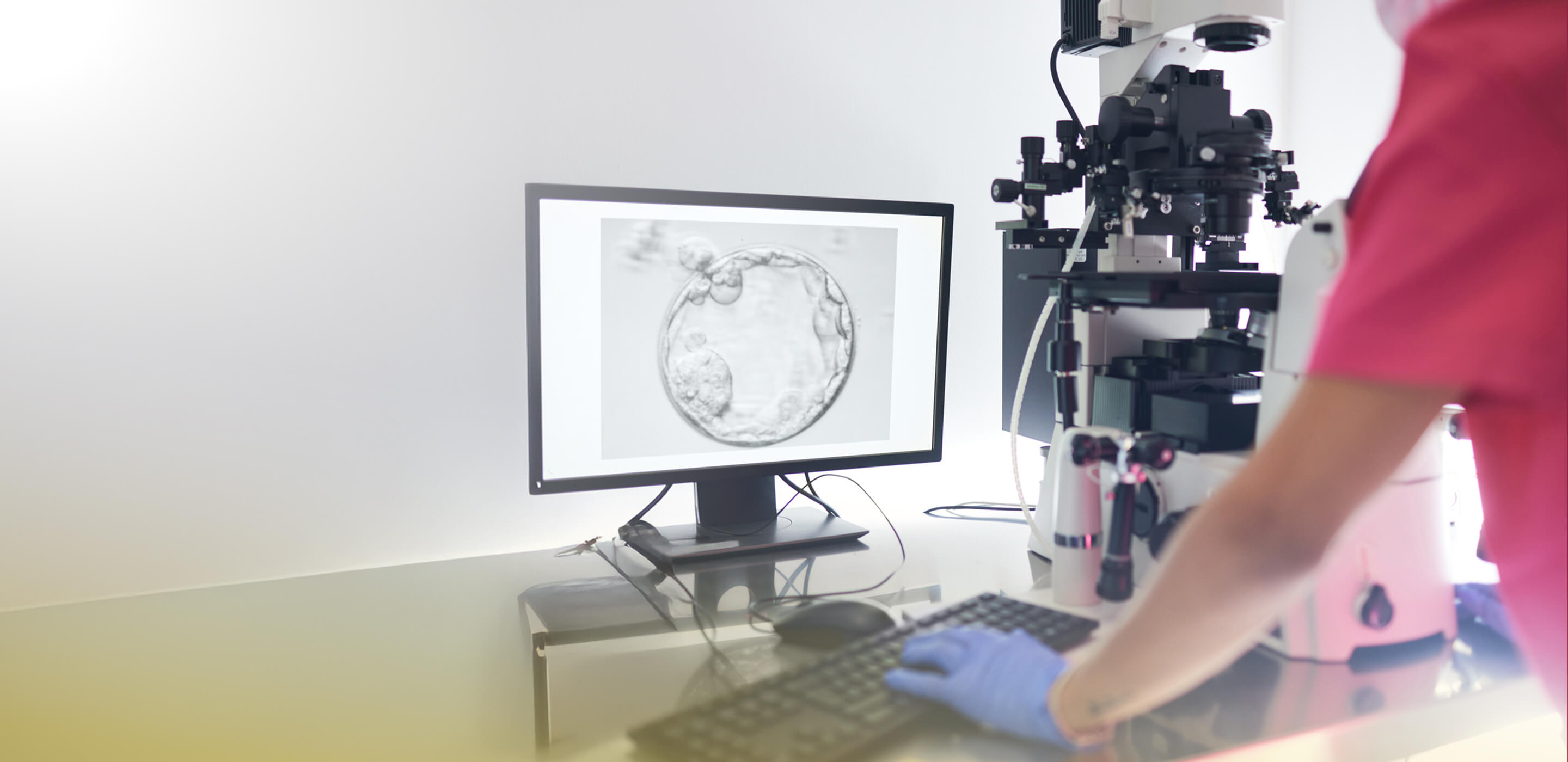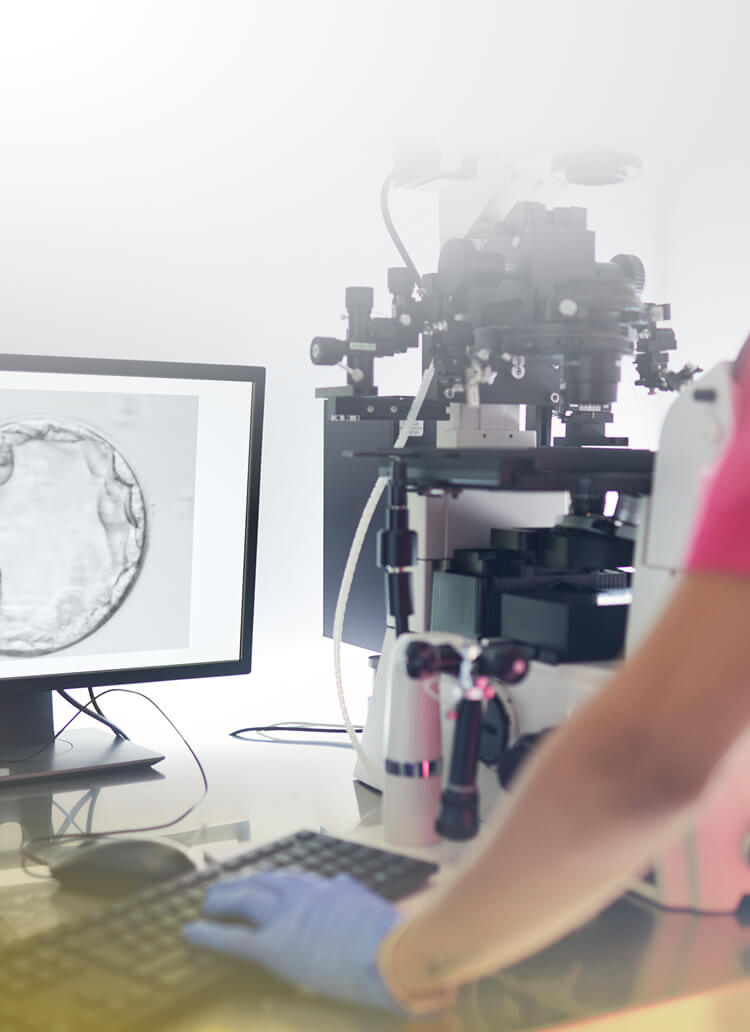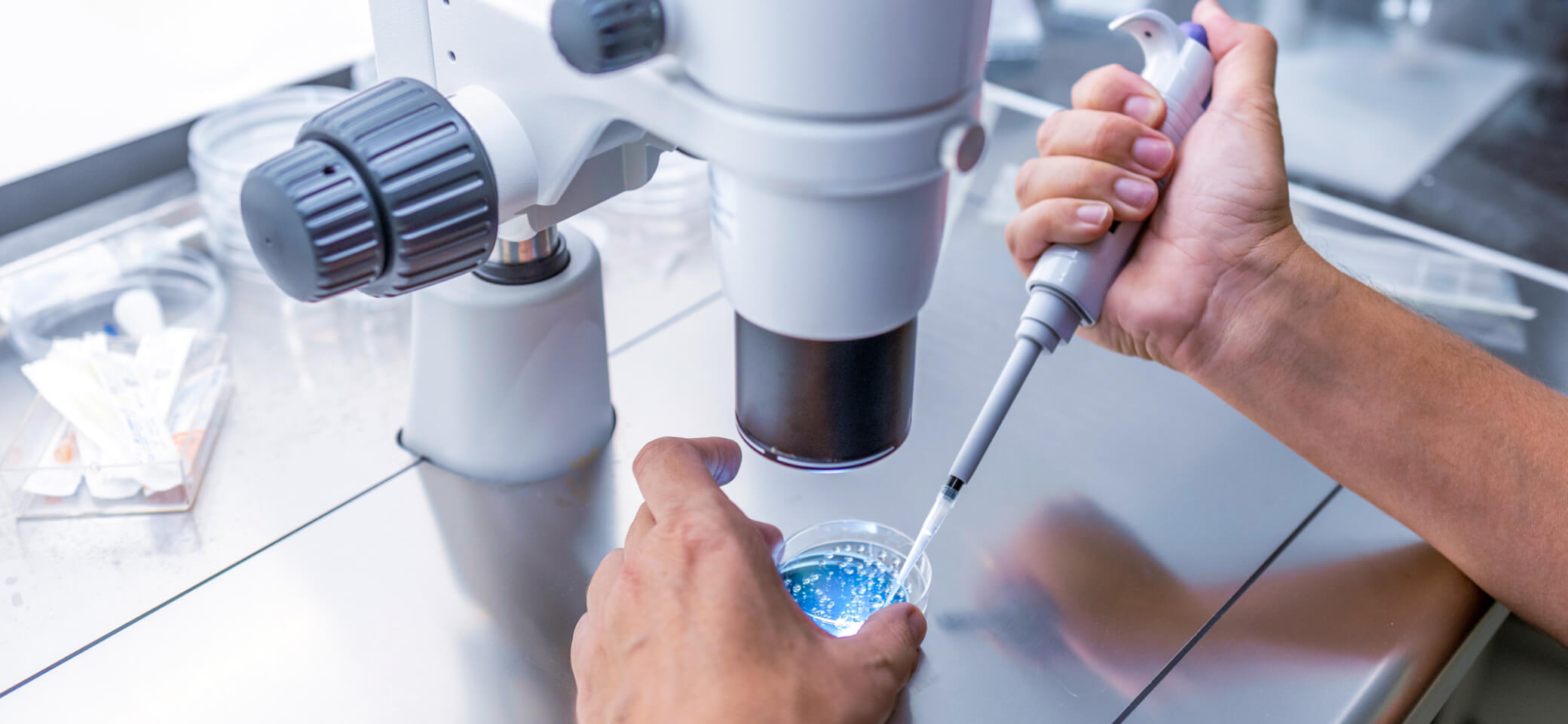Your local home for world-class fertility care
Our boutique fertility clinic is located in northeast Louisville, Kentucky, convenient to Bardstown, Bowling Green, Lexington, Owensboro, Richmond, and Southern Indiana.

In vitro fertilization (IVF) is one of the most well-known and successful types of assisted reproductive technology (ART). Nearly 3% of all live births in the United States result from IVF. During this treatment, the egg and sperm are fertilized in a laboratory, resulting in an embryo. The embryo is then either transferred into a woman’s uterus or frozen for future use. Since the first IVF baby was born in 1978, over 8 million babies have been born via this process worldwide.
At Kentucky Fertility Institute, we understand that undergoing fertility care can be a difficult journey, and it’s normal to have anxieties about advanced procedures like IVF. While IVF is a common procedure, we do not “default” to it — or any treatment — until we listen to your goals, review your medical history, and learn more about you through conversation and necessary testing. If IVF is the right path for you, our priority is to support you through each step of the process to ensure that you feel comfortable and confident during your time in our care.
To begin IVF, you’ll take fertility medications for 8-12 days to stimulate the development of multiple ovarian follicles, which are egg-containing cysts. Giving yourself shots may seem intimidating at first, but we’ll teach you how to do it as quickly and painlessly as possible. We’ll monitor your response throughout the process using sonograms and blood tests. When the timing is right, you’ll administer a trigger shot to induce the final maturation of the eggs. The more mature eggs there are, the more opportunities we have for a successful outcome.
Egg retrieval procedures are done under conscious sedation to ensure patient comfort. Using continuous transvaginal ultrasound guidance, your physician will aspirate each ovarian follicle to retrieve mature eggs using a small, specialized needle. The entire process only takes 15-30 minutes, and most patients feel comfortable enough to return to work the following day.
Sperm from a partner or donor will be collected on the same day as the egg retrieval, or can be frozen in advance in select cases. In cases of male factor infertility, a testicular biopsy can also be performed to extract sperm for IVF. During preparation for fertilization, our embryologist will separate sperm cells from the seminal fluid under a microscope to increase the number of motile sperm available for use.
Following the retrieval procedure, the eggs and sperm are fertilized in our laboratory. In some cases, the eggs and sperm can be cultured together to allow fertilization to occur spontaneously. In other cases, a skilled embryologist may perform an intracytoplasmic sperm injection (ICSI), where a single sperm is directly injected into each egg to improve the chances of a successful pregnancy. The resulting embryos are typically cultured for five to seven days in the laboratory to observe their development and facilitate their selection for transfer, biopsy, or storage.
On the day of embryo transfer, a small catheter is used to gently place an embryo into the uterus of the intended carrier. This process is done under continuous transabdominal ultrasound guidance to guide the catheter to the best location within the uterine cavity. The procedure only lasts about 5 minutes, and most patients report that it feels similar to a routine pap smear.
At KFI, we strictly follow the American Society for Reproductive Medicine (ASRM) clinical guidelines to help reduce the likelihood of multiple births. For most patients, a single embryo transfer is recommended to help achieve a successful and safe pregnancy.
After the transfer is complete, the embryo should “hatch” from its outer shell and implant into the uterine wall. We will draw a blood test between 9 and 11 days after the transfer to detect whether the hCG hormone is present, confirming pregnancy.
During IVF, more embryos may develop than are initially used or transferred. In these cases, aspiring parents can freeze (cryopreserve) high-quality embryos to have available for future pregnancies.
At KFI, we exclusively use vitrification for our cryopreservation procedures. This new technology uses ultra-rapid cooling to minimize ice crystal formation and potential damage to frozen embryos, and numerous studies have shown better post-thaw survival and higher live birth rates using this technique. Vitrified embryos can be safely maintained in storage for years, or even decades!
"My partner and I have had IVF treatment at three different fertility clinics. Our experience at KFI has been the most impressive in many ways. Not only is the small team personable and kind, but the medical care and treatment we received was superb."
— KFI Patient
IVF may be suitable for couples or individuals who:
Have not been able to conceive after one year of regular, unprotected intercourse if under the age of 35 or six months of regular, unprotected intercourse if over the age of 35
Have undergone other fertility treatments, like intrauterine insemination (IUI), and have been unsuccessful
Are part of the LGBTQ+ community
Are looking to use donor eggs or a gestational carrier
Have a medical condition that impacts fertility, such as endometriosis, polycystic ovarian system (PCOS), or low sperm count or motility
Are interested in preimplantation genetic testing to identify chromosomal abnormalities or inherited genetic disorders in an embryo
We’ll get to know you and your medical history during your first patient appointment. From there, we can determine whether IVF is the right treatment for you and how we’ll proceed with next steps. We’ll answer your questions and ensure you’re comfortable with the fertility plan.
Like any medical procedure, there are risks to undergoing IVF. Complications are rare but include:
Multiple births: At KFI, we typically only transfer one embryo at a time, reducing the likelihood of multiple births.
Ovarian hyperstimulation syndrome (OHSS): This condition can occur as a rare overreaction to fertility medications and can typically be managed safely in an outpatient setting.
Birth defects: Most studies have not shown an increased risk of birth defects in children born from IVF treatment. Your obstetrician may recommend extra monitoring during your pregnancy to help ensure a healthy outcome for you and your baby.
IVF involves self-administered hormone injections, which may seem daunting at first. However, these injections are relatively small and should not cause significant discomfort. The egg retrieval process is similar to a routine pap smear, and most patients return to work the day after the procedure.
If you have a medical condition that prevents your ability to safely carry a pregnancy, you can use a gestational carrier (or surrogate). Whether you prefer to use a close contact as your gestational carrier or recruit one through an outside agency, we will help to ensure the process proceeds as smoothly, safely, and successfully as possible for all parties involved.
Different factors can influence IVF success, including age and type of infertility problems. Many patients will conceive after a single IVF cycle, while others may require multiple egg retrievals and/or embryo transfers. IVF is not a guarantee, and it is important to discuss your individual chance of success with your provider.
The expert team at Kentucky Fertility Institute offers world-class fertility care and the latest diagnostic and treatment options for patients. No matter where you are in your fertility journey, you can count on our specialists to address your needs and provide personalized care. Contact us today for more information about IVF or to schedule an appointment with one of our reproductive specialists.
Our boutique fertility clinic is located in northeast Louisville, Kentucky, convenient to Bardstown, Bowling Green, Lexington, Owensboro, Richmond, and Southern Indiana.



